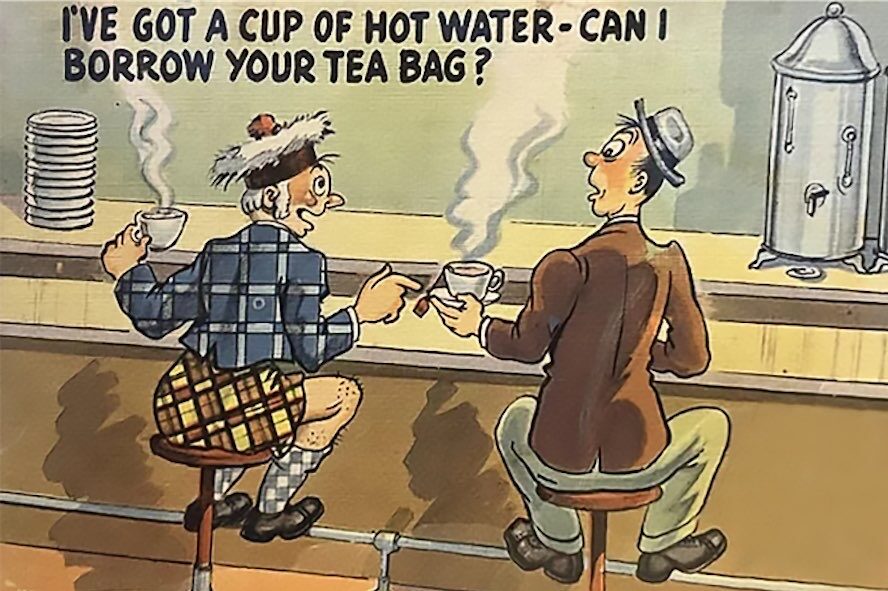
With apologies to Jonathan Swift, columnist HUGH SELBY shares a fictional tale of when hapless Gullible discovers the political panic when an Integrity Body, supposed to be set up just for show, starts getting on with the job. There was a real risk of people, important people, being labelled as corrupt. The timing was appalling. Elections were in the offing. What to do?
Once upon a time there was an itinerant called Gulliver who travelled to distant realms where he sat down with dwarfs and giants.

He wrote a book about it, using the pseudonym Swift, under the “what you read is what you get” title, “Gulliver’s Travels”.
Today’s tale is reminiscent of Gulliver’s experience, with the narrator being a “wanna be” political pundit called Gullible by everyone.
Gullible found the portal to a parallel world where the hospitals were well staffed, there were no waiting lists for public housing, the schools scored way above every other part of the realm on the Naplan tests, quick and affordable electric public buses connected all points, police were happy with their salary and the low rate of domestic violence, and the kangaroo and rabbit populations were just fine.
By chance Gullible walked into a meeting room where a small group were discussing how to deal with a tricky problem. There was a smell of panic. Apparently, in a moment of madness, this group had set up an Integrity Body to root out corruption. It was supposed to be just for show. They made a terrible mistake when they appointed a chief who, instead of sleeping, not only stayed awake but got on with the job.
One or two of the chairs at the table were empty, apparently because their usual incumbents had run into a spot of bother with that Integrity Body. There was a real risk of people, important people, being labelled as corrupt. The timing was appalling. Elections were in the offing and for the first time in years there were other candidates, not aligned, who might end what had seemed to be a sinecure. All these newbies had to promise was to be honest and transparent, two words which every experienced person at the table knew to be fatal to political survival.
Someone had come up with a cunning plan. One of the persons of interest to the Integrity Body was a contractor – hardworking, experienced, loyal, competent, but needing a contract renewal to feel safe and wanted.
It was all arranged over lunch in an unobtrusive corner of a restaurant, inaccessible to busybodies with their phone fingers poised over “record note”.
The contractor started court proceedings to close down the inquiry, claiming apprehended, or actual bias, denial of natural justice, a breach of the requirements laid out in the enabling law, a hint of some departure from the Human Rights Act, and a breach of their Privacy Act.
Using AI, producing this document took no time at all. It was duly filed in the court and served on the Integrity Body – a masterstroke in preventive readiness.
A short time later the contractor was summoned to give evidence to the inquiry. Given that they had started a court action the expectation, at least in the Integrity Body, was that the contractor would rush to the court and get an injunction that stopped the inquiry from compelling their attendance and asking them any questions until the main action was heard and determined.
Had that happened the full hearing of the application to close down the inquiry would have quickly followed, that being a most unfortunate event. No-one at that table thought the inquiry could be stopped; however, delaying any findings until after the election could be easily achieved by using the law of public inertia.
There was no court application to quash the summons to attend. There was no court application to stop the questioning. The contractor went to the inquiry and deftly answered the questions and parried every attack, real or imagined.
The application floated, just beneath the surface, waiting to be energised if the inquiry showed signs of producing a damning report in the lead up to the election. Then an injunction order stopping the publication until the main litigation action had been heard could be sought at any time of the day.
Meantime, because the Integrity Body was busy it had agreed to the final hearing being delayed for months to a date well after the election. After all, the business of elections was not its business.
“Business as usual” had reigned until an unexpected court application by the Integrity Body. Just as here, so there the court rules provide that a case can jump the queue by being expedited (rule 1311) when it is “in the interests of justice”. What’s more, one judge can be appointed not just for the hearing but for all the pre-trial directions (rule 1326).
The supporting documents from the Integrity Body pointed to the failure to seek any injunction, saying that amounted to a “waiver” of any claims to stop the inquiry, as well as being a failure to pursue the matter with the resoluteness that would be expected of a well-funded, bonafide litigant.
Further it was not in the public interest for this Inquiry to continue under a cloud. Nor was it proper for an Integrity Body to spend public funds if their efforts were futile. Put up or shut up.
Gullible smiled.
Former barrister Hugh Selby is the CityNews legal columnist. His free podcasts on “Witness Essentials” and “Advocacy in court: preparation and performance” can be heard on the best known podcast sites.
Who can be trusted?
In a world of spin and confusion, there’s never been a more important time to support independent journalism in Canberra.
If you trust our work online and want to enforce the power of independent voices, I invite you to make a small contribution.
Every dollar of support is invested back into our journalism to help keep citynews.com.au strong and free.
Thank you,
Ian Meikle, editor




Leave a Reply